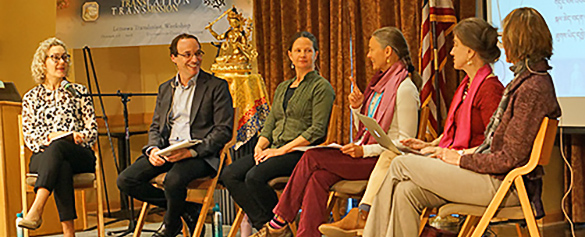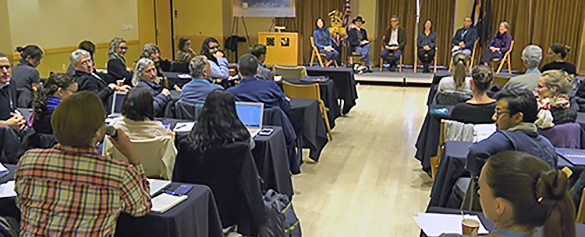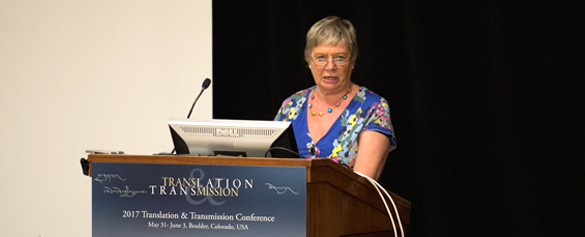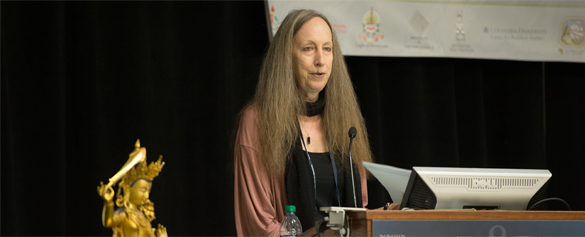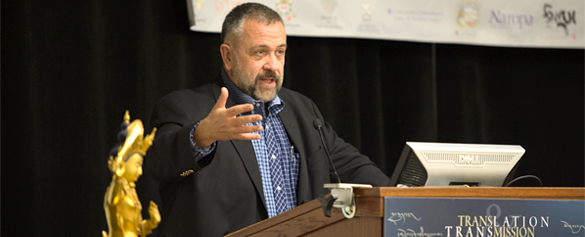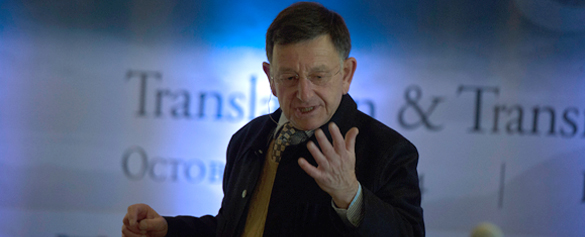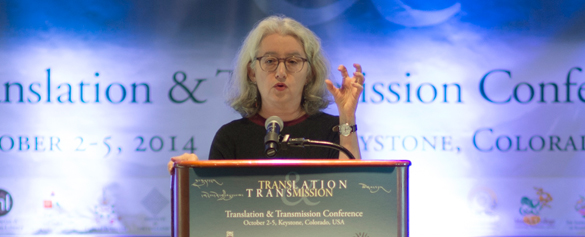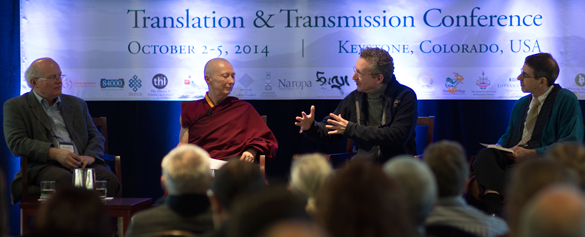Dynamics of Devotion
Migmar Lama2022-11-16T23:40:43-07:00Andrew Quintman (Wesleyan), Lara Braitstein (McGill), Heidi Nevin (Independent), Anne Klein (Rice), Holly Gayley (University of Colorado, Boulder), and Annabella Pitkin (Lehigh) take on the topic of devotion in translation. Annabella Pitkin skillfully facilitates discussion focused on three themes: literary and embodied devotion, translation as an act of devotion, and the cultural translation of devotion. Regarding the first, the group considers what terms are particularly difficult to unpack in English, posing questions like, “How does language serve to dictate devotion?”, and, “How does literature and its utterance help mediate the distance between subject and object?” While translators are positioned as […]

